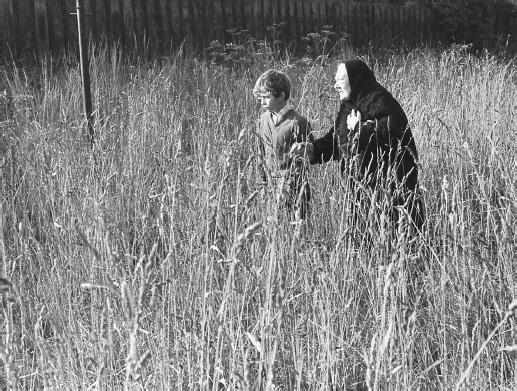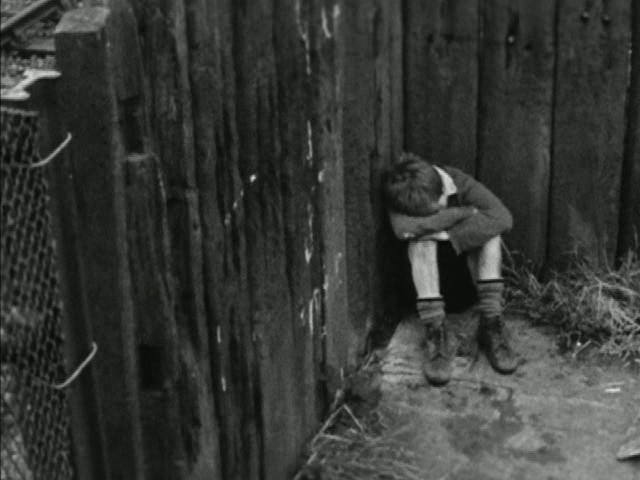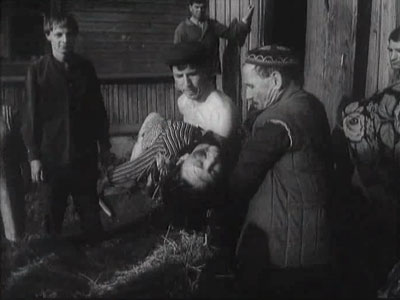We have been here before, albeit in different forms. Almost without exception, Coetzee’s work from Elizabeth Costello on has been concerned with the role of authors and authorship, not only of fiction but of memoirs and essays. He has repeatedly presented fictional characters giving speeches, opinions, or recollections that have repeatedly been confused as the opinions of the real Coetzee. Richard Crary’s piece on Diary of a Bad Year is one of the best attempts to read these polemics and opinions with respect to their fictional context, but most critics seem to still be taking Coetzee’s books at face value.
Summertime is in many ways the culmination of this project of Coetzee’s, and the most explicit depiction of the ambiguities and metafictional techniques he is using. It also makes clear that the series extends back before Elizabeth Costello to the two “memoirs” preceding it. In light of that, there is an apparent progression (links are to my earlier reviews):
- Boyhood: Scenes from Provincial Life (1997): Third-person “memoir” of a child with history similar to Coetzee’s, filed as “Coetzee biography” by the Library of Congress.
- Youth: Scenes from Provincial Life II (2002): Third-person “memoir” of a young adult with history similar to Coetzee’s, not classified as any sort of biography.
- Elizabeth Costello (2003): Fictional writer Costello presents opinions that share some similarity to what is known of Coetzee (e.g., both are vegetarians).
- Slow Man (2005): Costello invades life of injured photographer Paul Rayment, who shares some characteristics with Coetzee (e.g., biker, Australian resident). Costello claims she is his author.
- Diary of a Bad Year (2007): Coetzee doppelganger “J.C.” writes many political opinions while involved in a soap operaish plot with his amanuensis.
- Summertime (2009): Biographer interviews five people for a book he is writing about the recently deceased John Coetzee, who has written all the books of the real Coetzee up until his death.
[I am withholding judgment on whether Disgrace (1999) fits into this sequence. It is problematic. I will say that I prefer Summertime to it, evidently putting me into a small minority, though I suspect that many, many others will enjoy Summertime more, as I did.]
Coetzee does not append any description to the first two books (my US copy of Boyhood has “A Memoir” on the cover but nowhere else, so I am not taking it as canon), while he explicitly declares the subsequent books to be “Fiction.” The first hint of something wrong occurs in Youth, which omits all mention of the real Coetzee’s marriage during the time it covers. From there on, no double for Coetzee appears until Diary, but the host of variations from the real Coetzee (different birth year, never married, no children) made the distinction apparent. Likewise in Summertime: unmarried, childless. There is little to suggest that any of the people in Summertime are real or, in the case of his family, that they correlate to their real-life counterparts.
So the Coetzee of Summertime matches up with J.C. in Bad Year, and his childhood bears some resemblance to that described in the first two “memoirs,” but with small, notable differences, the most obvious being that cousin Agnes in Youth has become Margot in Summertime, though both have the Coetzee-surrogate falling in love with her as a child. Coetzee would never make such a name-change spuriously, and so I must assume that there is no strict continuity here between the Coetzee surrogate across books.
Here the distinctions are even more explicit, as during the 1970s, the fictional Coetzee is unmarried and has several love affairs recounted by the interviewees. And he’s now dead. So at once we have the most evident coincidence with Coetzee’s public life with the greatest variation from his private life. Call him “Bizarro Coetzee.” And we have five people talking about this Bizarro Coetzee to our unnamed biographer, bookended by oblique fragments from Bizarro Coetzee’s notebooks that date (mostly, at least) from the 1970s (though annotated by Bizarro Coetzee at some later date). The opening fragments are in the possession of the biographer, as he references them; the ending fragments, possibly not.
The biographer is looking for the man behind the books. None of the five people are particularly interested in how the Bizarro Coetzee (from here on out, just “Coetzee”) they knew relates to his books, and they express varying degrees of irritation at what they perceive to be the irrelevance of the biographer’s intentions. Each of them has their own agenda:
- Julia: A rather self-centered and self-willed free spirit who cheated on her husband with the hapless and dispassionate Coetzee in the early 70s when she was still a naive housewife, and since then has thought little of Coetzee (in both senses of the word).
- Margot: The aforementioned cousin who had a very close relationship with Coetzee while growing up, maybe enough to call love.
- Adriana: A Brazilian immigrant and dance instructor whose daughter was taught by Coetzee in high school the mid-70s. Coetzee falls in love with her and does not let go. Awkwardness ensues. Adriana detests him.
- Martin: A supercilious and trite colleague of Coetzee’s from his university teaching days.
- Sophie: An archetypal self-righteous postcolonial academic who co-taught and had a brief affair with Coetzee at the university and thinks him not radical enough.
With the exception of Margot, none of the subjects come off particularly well (there are hints that some of them, especially Adriana, are not telling the whole truth), but neither does Coetzee, who is ridiculed by them as a bore, a nerd, a pervert, and a prig at various times. Yet the most ridiculous figure in all of the sections is the biographer himself (for it must be a man). He is manipulative and ignorant. He gets simple facts about South African history wrong, misquotes Beckett, puts words into the mouths of his interviewees, and is indifferent to anything outside of the quarry he is chasing. That quarry is the romantic image he has of Coetzee as a solitary pedant more interested in books than in people. It is not that there is no truth to this image or that it is not compelling, but it is a wild distortion, and the biographer is rather bad at his job.
The keystone is the section with Coetzee’s cousin Margot, which is not a straight interview, but a transcript of the biographer reading his draft back to Margot with Margot’s interruptions. Margot’s reaction is one of horror as she hears what the biographer has embellished, invented, and distorted of what she told him earlier; it’s no wonder she wants to go back over it again at the end of the transcript. And the draft itself is the most sustained piece of intentionally bad writing Coetzee has ever done. His account of Margot’s story is filled with cliched eroticism (see page 137 for a cringeworthy example), purple passages clumsily reaching to the sublime, and tacky interpolations of native Afrikaans words to give a sense of local color. For example, this passage about Margot and her lover:
Skat: an endearment she disliked until the day she heard it from his lips. Now, when he whispers the word, she melts. This man’s treasure, into which he may dip whenever it pleases him.
They lie in each other’s arms. The bed creaks, but she could not care less, they are at home, they can make the bed creak as much as they like.
Excruciating. Other cheap biographical tropes are present by the dozen, and by the end the biographer has replaced the selfish, would-be bohemian Julia as the most loathsome character in the book. The link between the two is their single-minded exploitation of others. Julia uses Coetzee in her story of finding herself just as cravenly as the biographer is using his subjects to “find” the Coetzee he already has decided exists.
There are some recurrent themes, however, the dominant one of Coetzee being ill at ease and repressed around most everyone. Julia is too narcissistic to link this repression to Apartheid, while Sophie is too eager to do so, but the fictional Coetzee is no doubt as uncomfortable revealing himself as our real Coetzee appears to be in writing these books, though obviously for different reasons (only one is a famous writer who has won the Nobel prize). And he does show himself in his solitary studies: Schubert, Plato, the Hottentot language. In the unreliable words of the biographer, he claims to have learned Hottentot to “speak with the dead. Who otherwise are cast out into everlasting silence.” This is, of course, exactly what the biographer is not doing; the voices of the living, including his own, drown out those of the dead throughout the book.
So we are left only with the notebooks at the beginning and end. They do not bolster the biographer’s image of Coetzee. They show engagement: with history, with politics, with his family and particularly his father. (These are subjects the biographer has mostly avoided in favor of more tawdry gossip and neat conclusions.) Coetzee in the notebooks is far more aware than the interviewees have depicted him, though no less tentative. The last entry is an agonizing depiction of Coetzee’s father and his cancerous illness, and it ends with a question mark, a moment of decision that cuts off before the decision is made. Since this notebook is still buried in layers of fictionality, there is no truth as to what happened next, only a fragment. The way I read it, Coetzee speaks to the living as one might try to speak to the dead, or perhaps to an alien species: assuming nothing, drawing no unwarranted conclusions.
(And even in the notebooks, the elisions and distortions are obvious, particularly in the latter notebooks, where the high-minded prose sits uneasily next to the meek and clumsy Coetzee of the interviews, and the events recounted by the subjects are only alluded to.)
This is not a charitable interpretation, for the whole book has shown the pitfalls of his way, and he deserves no credit for an approach that seems to have been instilled in him long before he had a choice in the matter. But the mixture of raw (albeit untrustworthy) emotion with delicate confusion and indeterminacy has an accumulating impact, as you’re challenged to pull the tatters of Real Life from the mess of disingenuous versions proffered by the book’s characters, you fail to do so, and you are left with a shifting moire of relationships and human weaknesses that resists authentication. And yet there is great feeling in this ambiguous moire, even if it can’t be determined how valid or real any of it is. Unlike so much of Coetzee’s controlled work, Summertime exudes passion and warmth even when the characters themselves do not. It is his sunniest book, as though the layers of uncertainty have set free an expressive emotive power that would have been too manipulative to use in his earlier fiction.
The worth of Summertime is in portraying that moire of partial voices without the typically clinical, scientific condescension that accompanies it in, for instance, the myriad works of relativism and anti-foundationalism that wave away all certainties with a flourish and discount any meaning to them. Instead there is great feeling, albeit feeling which must be questioned and which is neither definitely true nor definitely false. Summertime leaves the door open.






